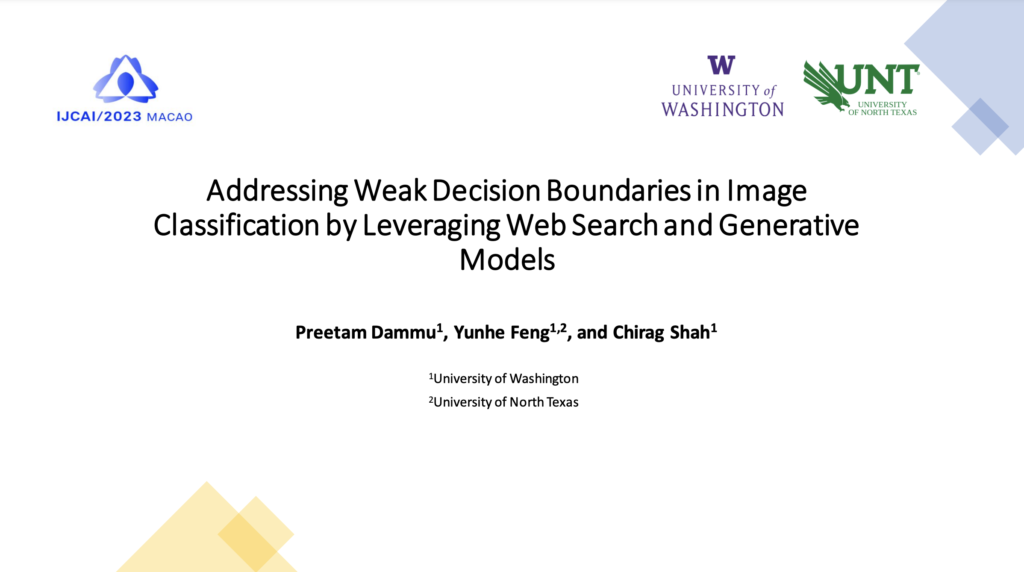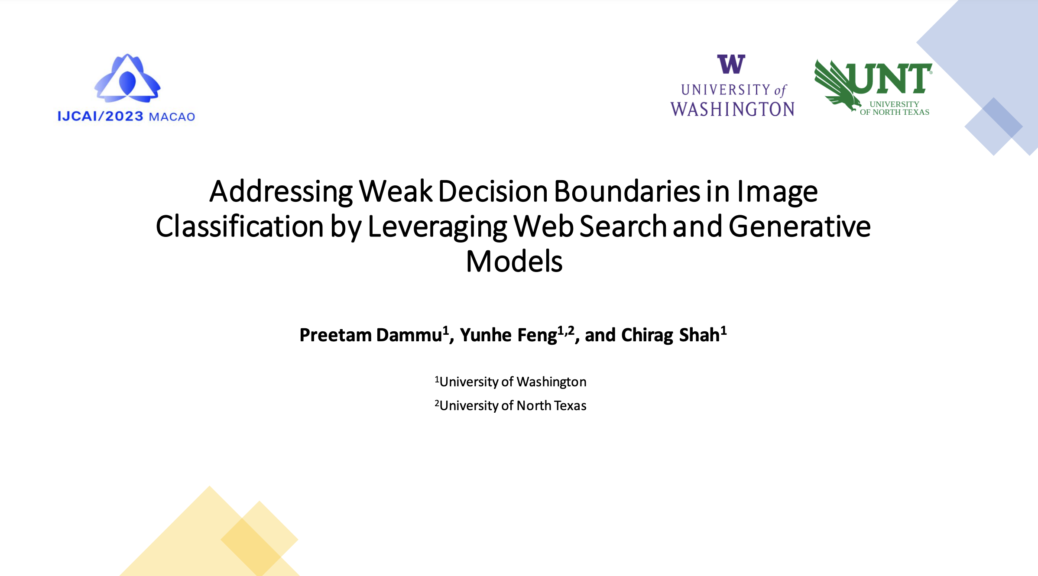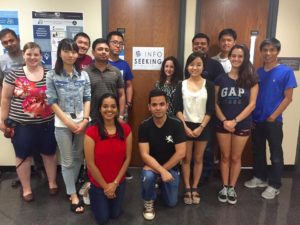𝐀𝐝𝐝𝐫𝐞𝐬𝐬𝐢𝐧𝐠 𝐖𝐞𝐚𝐤 𝐃𝐞𝐜𝐢𝐬𝐢𝐨𝐧 𝐁𝐨𝐮𝐧𝐝𝐚𝐫𝐢𝐞𝐬 𝐢𝐧 𝐈𝐦𝐚𝐠𝐞 𝐂𝐥𝐚𝐬𝐬𝐢𝐟𝐢𝐜𝐚𝐭𝐢𝐨𝐧 𝐛𝐲 𝐋𝐞𝐯𝐞𝐫𝐚𝐠𝐢𝐧𝐠 𝐖𝐞𝐛 𝐒𝐞𝐚𝐫𝐜𝐡 𝐚𝐧𝐝 𝐆𝐞𝐧𝐞𝐫𝐚𝐭𝐢𝐯𝐞 𝐌𝐨𝐝𝐞𝐥𝐬 #IJCAI2023
Preetam Dammu, Yunhe Feng and Chirag Shah

In an era where machine learning (ML) technologies are becoming more prevalent, the ethical and operational issues surrounding them cannot be ignored. Here’s how we tackled this challenge:
💡 The Problem:
ML models often don’t perform equally well for underrepresented groups, placing vulnerable populations at a disadvantage.
🌐 Our Solution:
We leveraged web search and Generative AI to improve the robustness and reduce bias in discriminative ML models.
🔍 Methodology:
1. We identified weak decision boundaries for classes representing vulnerable populations (e.g., female doctor of color).
2. We constructed search queries for Google and generated text for creating images with DALL-E 2 and Stable Diffusion.
3. We used these new training samples to reduce population bias.
📈 Results:
1. Achieved a significant reduction (77.30%) in the model’s gender accuracy disparity.
2. Enhanced the classifier’s decision boundary, resulting in fewer weak spots and better class separation.
🌍 Applicability:
Although demonstrated on vulnerable populations, this approach is extendable to a wide range of problems and domains.


